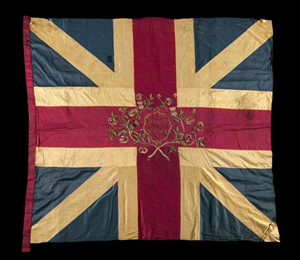The Union of England and Scotland

Since 1603, England and Scotland had been united only in the person of the monarch. They kept separate parliaments that retained at least the possibility of maintaining separate kingdoms. Scotland's parliament made that point quite forcefully in 1704 when it passed the Act of Security declaring Scotland's right to determine the succession of its crown, a direct response to England's Act of Settlement, which had established the Hanoverians as heirs to the throne. It triggered a constitutional crisis between the two nations when England's parliament immediately responded with the Alien Act of 1705, an ultimatum to Scotland to accept the Hanoverian succession or be declared a foreign nation and therefore banned from unfettered trade with England, Ireland, and the American colonies.
The Scots were in no position to suffer the loss of more than half their trade. Poor harvests in the 1690s and the extraordinary failure of an expensive plan to establish a trading colony at Darien on the Isthmus of Panama had already wrecked Scotland's economy, but a union with England would establish the largest free trade zone in the eighteenth-century Atlantic world. England was in a tight spot of its own. Enmeshed in the War of Spanish Succession with France, the English government could hardly worry about security problems on its northern border; consequently, English and Scottish commissioners set to work on a treaty that was ratified first by the Scottish Parliament in January 1707 and by that of England the following March.
The resulting Act of Union effectively abolished the states of England and Scotland, along with their parliaments, creating the kingdom of Great Britain, with one monarch and succession, one parliament, and equal rights in trade. It also established the Church of Scotland on the same footing as the Church of England and guaranteed to Scotland the perpetuation of its legal and local political systems. English and Welsh representation in the House of Commons and House of Lords of the new British parliament remained the same as that in the old English parliament. Added to the Commons were 45 Members of Parliament from Scotland, while 16 peers, elected by the body of the Scots aristocracy, joined the House of Lords. Not incidentally, the Act also contained the "Equivalent": a payment of £398,085 and 10 shillings, or the exact amount of money lost by Scots investors in the Darien project.
In the now British American colonies, the union was celebrated, particularly in Virginia. On October 24, 1707, Virginia's governing council signed an address to Queen Anne offering their "most hearty Congratulations" on the "Long desired Union of England and Scotland." The councilors, like many of their colonial compatriots, were "particularly sensible" of the benefits that would stem from "enlarging their Trade and Navigation to all the Ports of Great Brittain." Now that they were British Virginians they reckoned it in their interest as well as their duty to forget "all National Differences" and to "heartily...unite in Love to one another."





